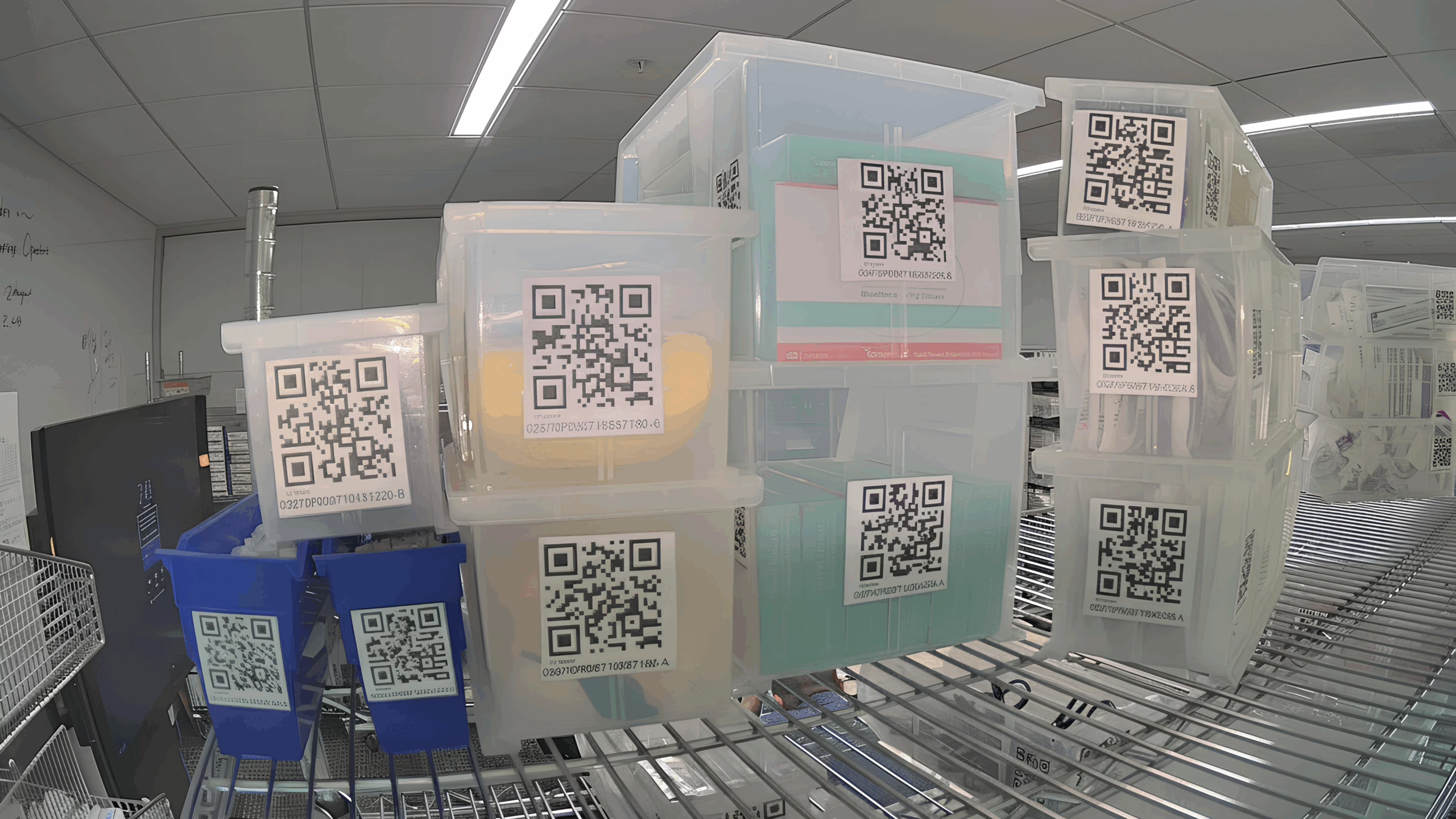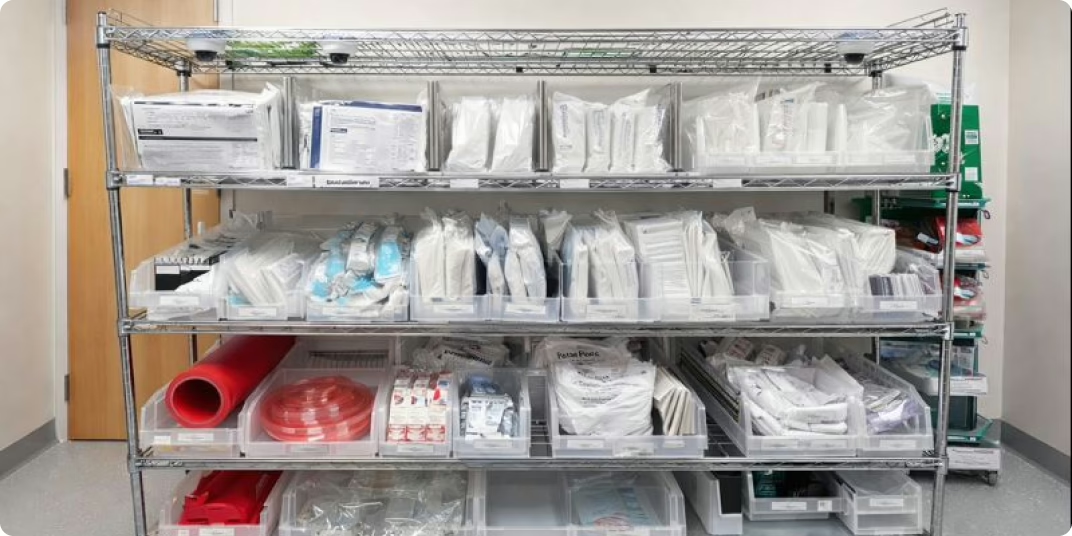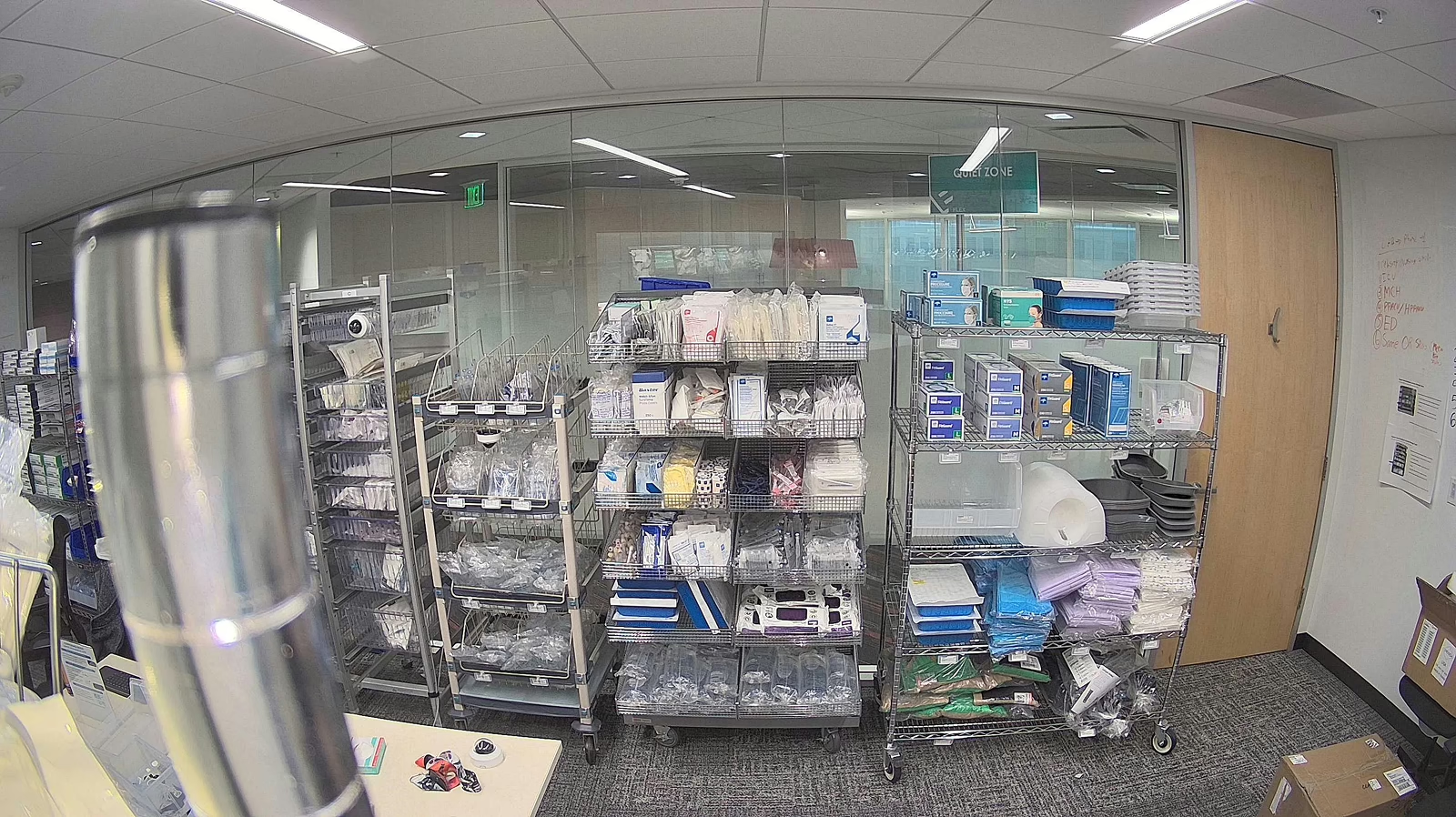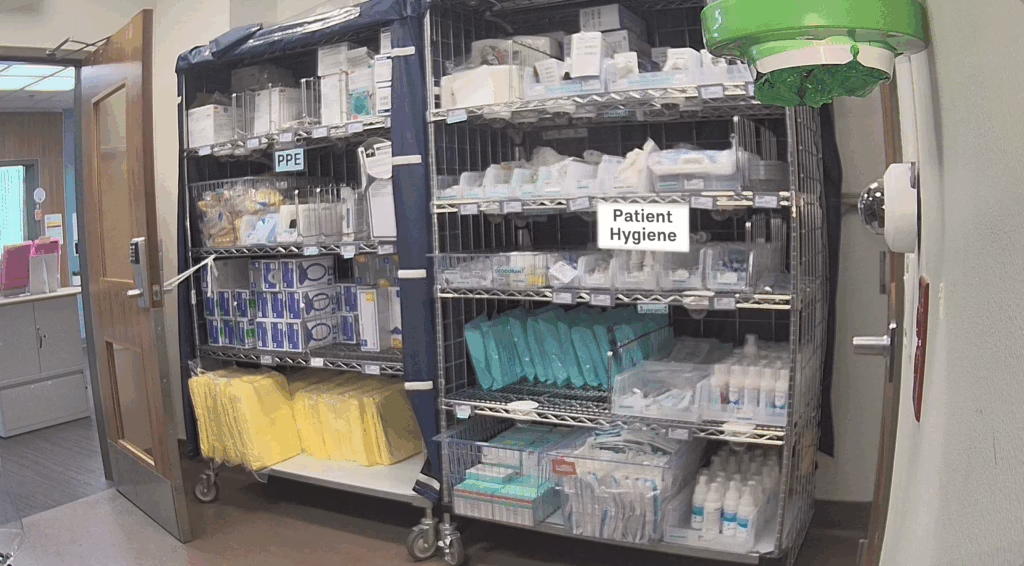In 2024, U.S. hospitals faced an “all-time high” of over 300 different drug shortages. This forced healthcare leaders into familiar crisis mode. More than half of providers had to cancel or reschedule procedures multiple times due to product shortages. About 38.8 million Americans were impacted by medical product shortages. Critical medications became unavailable with little warning. This included anesthesia and chemotherapy drugs, plus emergency medications stored in rapid response carts. The ongoing crisis exposes what supply chain leaders have long suspected. Traditional hospital inventory systems can track what’s currently on the shelves. But they can’t anticipate shortages or respond fast enough to prevent them.
AI healthcare inventory management fundamentally changes this dynamic. It combines real-time visibility with predictive analytics. This gives hospital leaders the ability to see supply consumption as it happens. They can forecast demand patterns weeks in advance. They can replenish critical items before stockouts occur. In today’s volatile supply environment, this capability has moved from competitive advantage to operational necessity.Why Traditional Inventory Tracking Falls Short
Why Traditional Inventory Tracking Falls Short
Manual counts, barcode scans, and periodic audits have anchored hospital inventory management for decades. While familiar to staff, these approaches create dangerous gaps. Actual usage and recorded data don’t match. During those gaps, critical supply areas can run dangerously low. No one notices until it’s too late.
According to AHRMM’s Keys for Supply Chain Excellence, these blind spots carry both financial and clinical costs. U.S. hospitals waste billions annually on expired or excess inventory. At the same time, they face shortages in high-demand categories. In operating rooms and emergency departments, the absence of a single critical supply can delay procedures. It can compromise patient outcomes.
“When I come in to work now, I am confident that the supplies I need to do my job are there and easy to find,” notes one clinician. This reflects the stress elimination that comes from organized, well-stocked supply rooms during patient care.
Real-Time Visibility Eliminates Dangerous Blind Spots
Modern AI healthcare inventory management addresses these limitations by providing continuous, real-time inventory visibility. Instead of waiting for end-of-shift updates or weekly counts, usage data flows immediately from automated sources including RFID-enabled storage systems, integrated ERP platforms, and direct distributor connections.
Supply chain teams can monitor what’s available, where it’s located, and consumption velocity across all departments. Hospitals implementing real-time inventory visibility in hospital supply chains report significantly faster replenishment cycles. They experience fewer emergency substitutions. Clinical confidence improves that necessary supplies will be available when needed.
As AHRMM notes in their supply chain recommendations, this “control tower” approach provides unprecedented ability to effectively manage and move critical products to areas most in need, building the resilience that traditional reactive systems cannot deliver.
Predictive Analytics Prevents Shortages before They Happen
Real-time visibility alone, while valuable, only shows current state. The breakthrough comes with AI-powered predictive capabilities that don’t just display inventory levels—they analyze consumption patterns, seasonal variations, supplier performance metrics, and external factors to project when specific items will hit critical thresholds.
Recent research from HIMSS and Medscape shows significant growth in AI adoption across healthcare, with nearly two-thirds of physicians now using health AI systems, representing a 78% increase from the previous year. This rapid adoption reflects healthcare’s recognition that AI can process complex data patterns far beyond human capability.
The predictive algorithms identify potential shortages days or weeks before they occur, automatically triggering appropriate responses, either placing replenishment orders directly with approved vendors or sending targeted alerts to procurement teams. This proactive approach eliminates the premium costs and extended lead times that accompany reactive shortage management.
Healthcare systems implementing AI-powered predictive systems report the ability to identify potential shortages weeks in advance, allowing procurement teams to secure inventory through standard channels rather than emergency orders. This proactive approach eliminates the premium costs and extended lead times that accompany reactive shortage management.
Measuring Strategic Impact
For hospital executives, the value of AI healthcare inventory management translates directly to key performance metrics that matter to organizational success. Waste reduction typically shows immediate impact, as systems eliminate both overstock situations and expired inventory, often freeing up significant working capital within the first year of implementation.
Procurement cost reduction follows closely, as the elimination of emergency orders and expedited shipping removes premium pricing from the supply chain equation. The technology frees supply chain professionals from routine monitoring tasks, allowing them to focus on strategic initiatives like supplier relationship management and process optimization.
Most critically, AI healthcare inventory management protects clinical readiness. Healthcare systems using predictive inventory management report substantial reductions in stockouts of priority supplies, ensuring critical items remain available when and where patient care demands them.
Healthcare systems using predictive inventory management report substantial reductions in stockouts of priority supplies, ensuring critical items remain available when and where patient care demands them. Research indicates that hospitals implementing AI hospital inventory management systems typically achieve 4:1 ROI while driving operational efficiency gains through reduced waste and improved supply availability.
Strategic Considerations for Healthcare Leaders
The healthcare supply chain has become increasingly complex and unpredictable. Global manufacturing disruptions, extreme weather events, and sudden demand surges make reactive inventory management a significant operational risk. AI is proving instrumental in optimizing hospital workflows and reducing administrative burdens while enhancing overall operational efficiency.
AI healthcare inventory management provides the visibility, predictive capability, and automated response mechanisms needed to maintain stable operations despite external volatility. Healthcare organizations implementing these systems position themselves to control costs more effectively, maintain supply availability during disruptions, and support clinical teams without operational interruptions.
Understanding why hospitals still run out of critical supplies becomes essential when addressing these foundational challenges through strategic AI implementation.
The Competitive Advantage
Healthcare systems that adopt AI healthcare inventory management now gain significant operational advantages over those relying on traditional reactive approaches. Beyond cost control and waste reduction, these organizations develop supply chain resilience that proves invaluable during market disruptions or unexpected demand spikes.
The data generated by AI inventory systems also provides strategic insights for long-term planning, helping healthcare leaders understand true consumption patterns, identify optimization opportunities, and negotiate more effectively with suppliers based on actual usage data rather than historical estimates.
As supply chain volatility continues and healthcare margins remain under pressure, AI healthcare inventory management transforms from an optional enhancement into a strategic necessity for maintaining operational excellence and financial stability.
Ready to explore how AI healthcare inventory management can transform your supply chain operations? Contact our team to discuss how predictive inventory solutions can reduce costs and eliminate stockouts at your healthcare organization.







